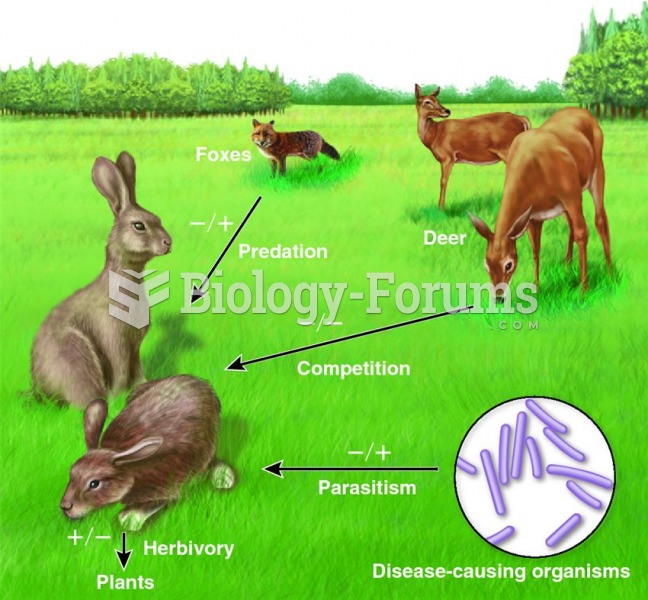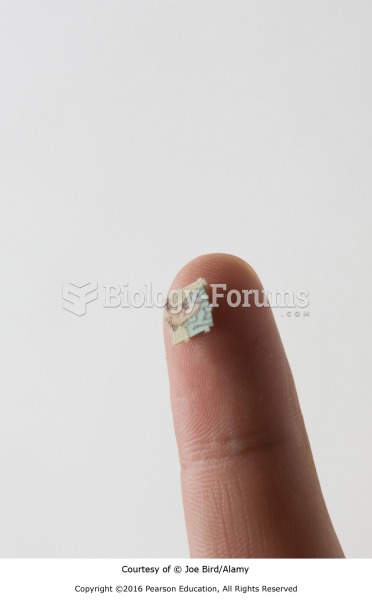|
|
|
Today, nearly 8 out of 10 pregnant women living with HIV (about 1.1 million), receive antiretrovirals.
Aspirin may benefit 11 different cancers, including those of the colon, pancreas, lungs, prostate, breasts, and leukemia.
If you use artificial sweeteners, such as cyclamates, your eyes may be more sensitive to light. Other factors that will make your eyes more sensitive to light include use of antibiotics, oral contraceptives, hypertension medications, diuretics, and antidiabetic medications.
The National Institutes of Health have supported research into acupuncture. This has shown that acupuncture significantly reduced pain associated with osteoarthritis of the knee, when used as a complement to conventional therapies.
Amoebae are the simplest type of protozoans, and are characterized by a feeding and dividing trophozoite stage that moves by temporary extensions called pseudopodia or false feet.
 Protoneuridae is a family of damselflies. Most species are commonly known as threadtails, while othe
Protoneuridae is a family of damselflies. Most species are commonly known as threadtails, while othe
 Three possible phylogenies for the australopithecines with Au. anamnesis as the stem ancestor and re
Three possible phylogenies for the australopithecines with Au. anamnesis as the stem ancestor and re





